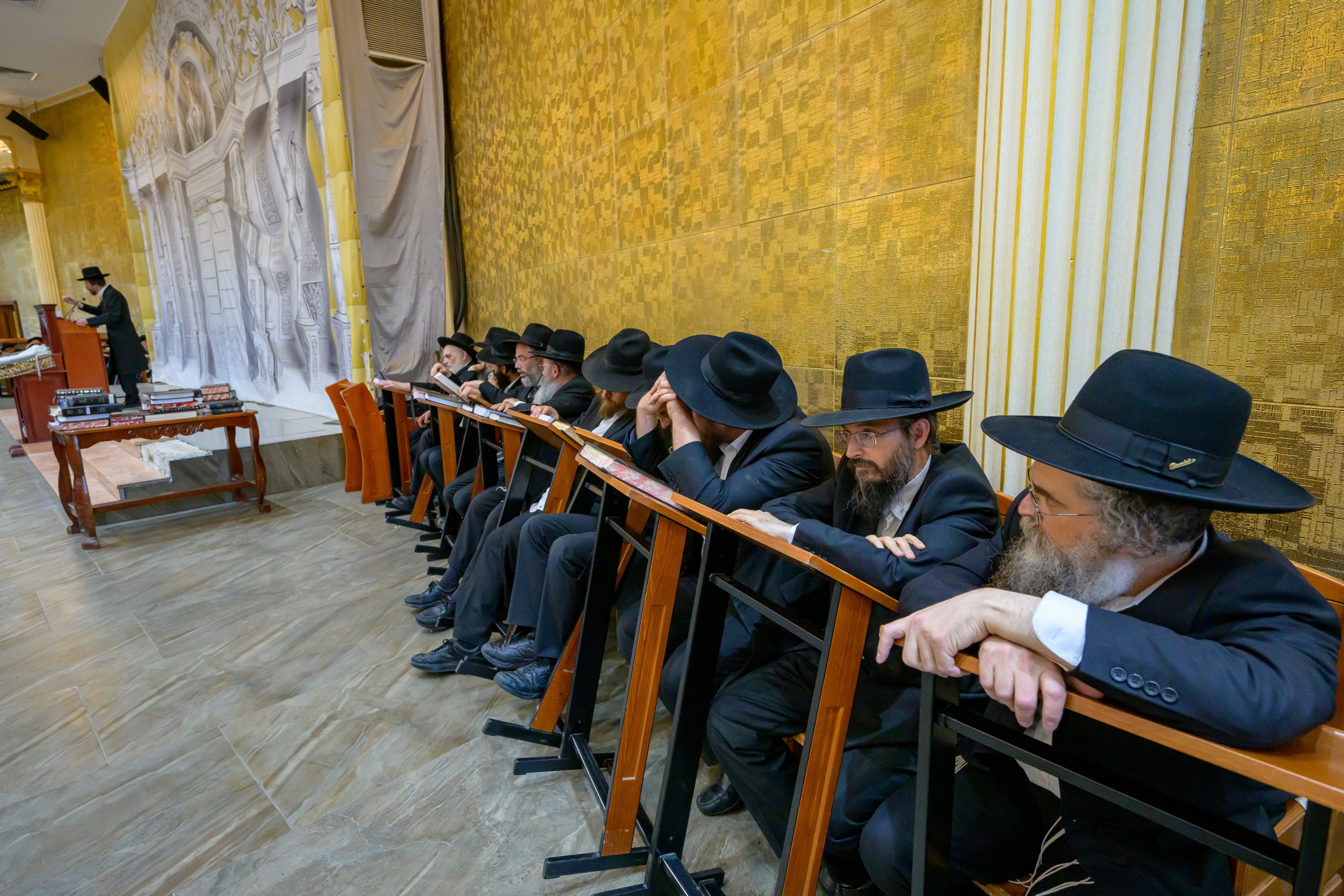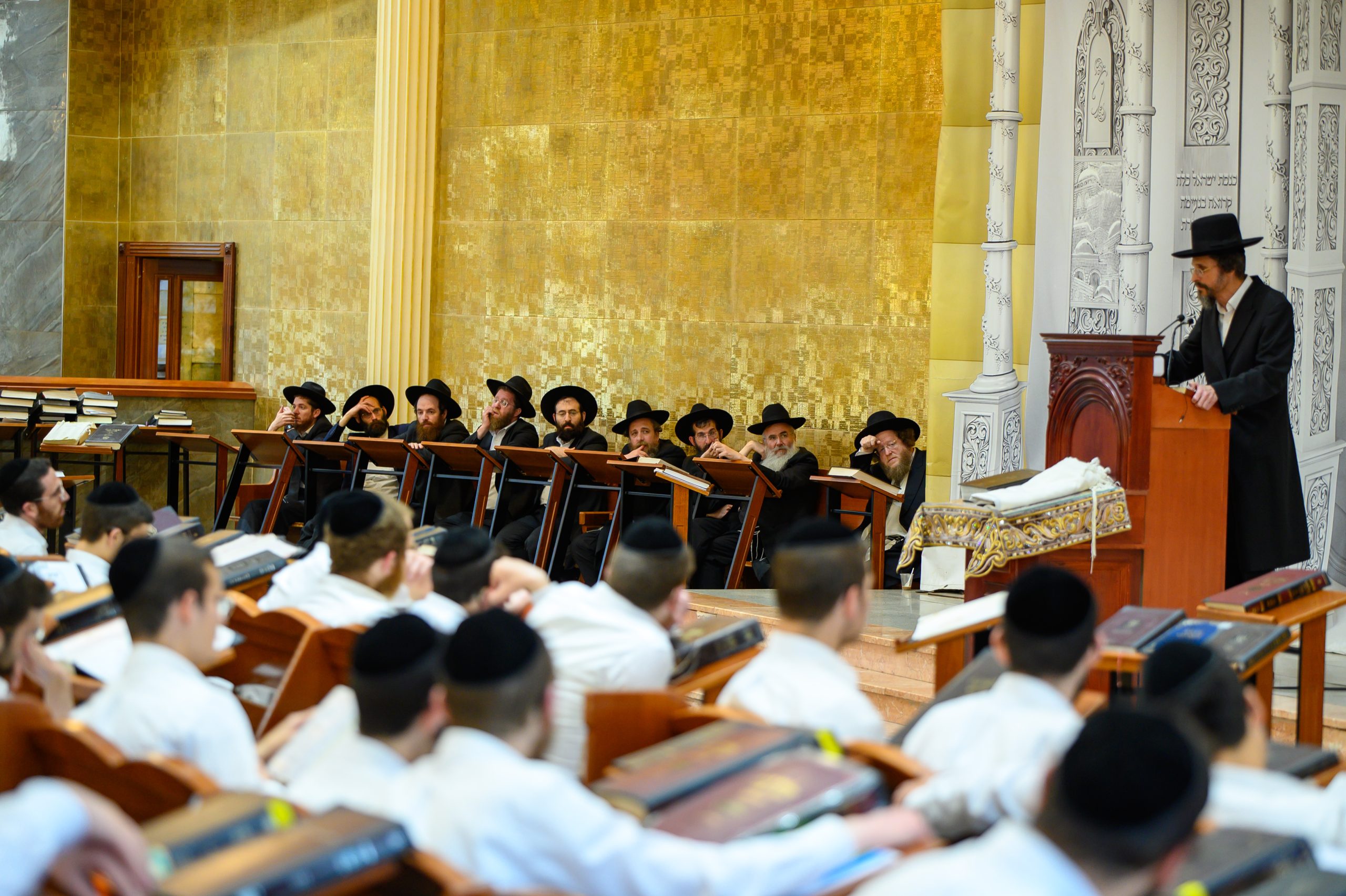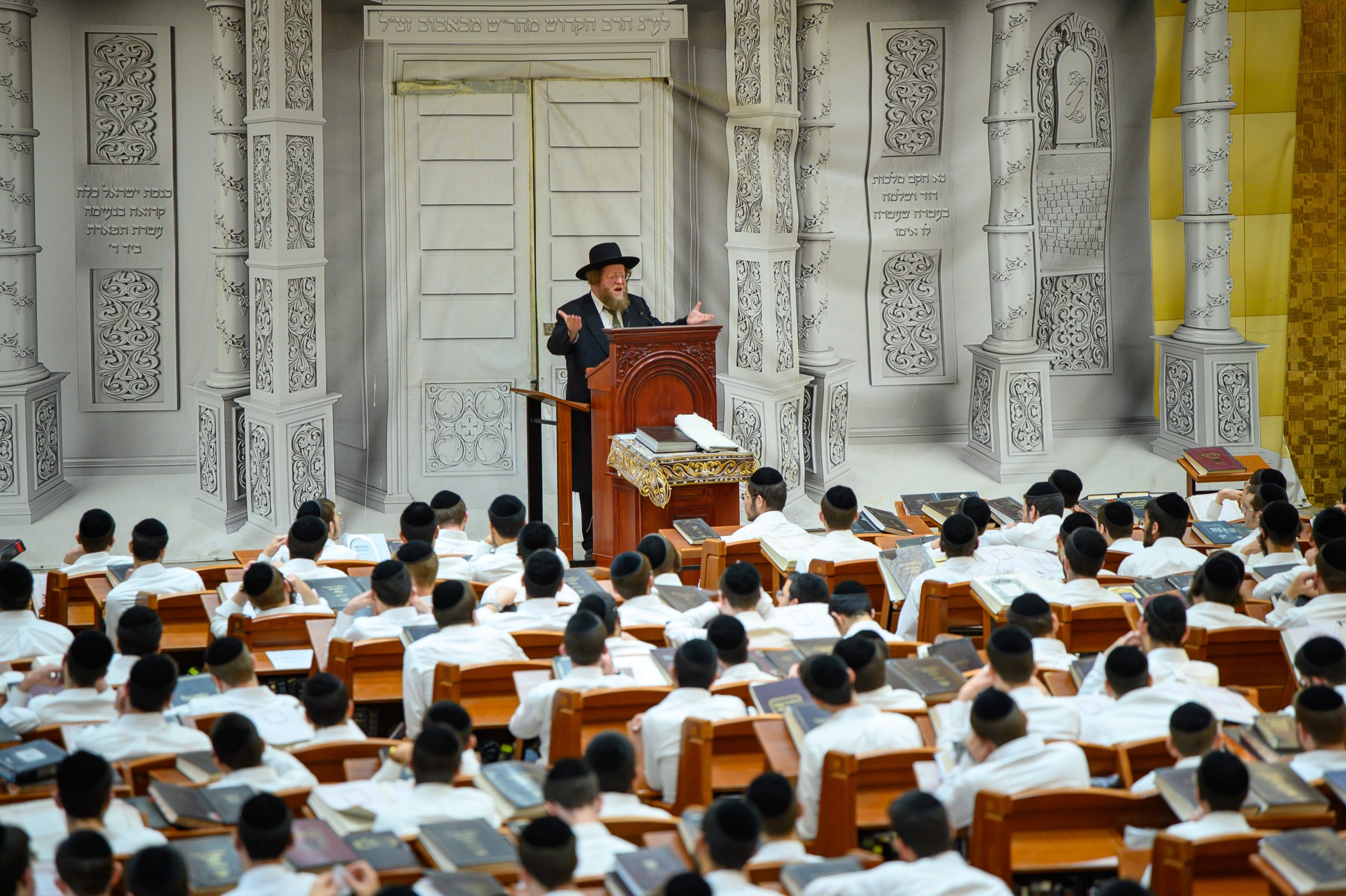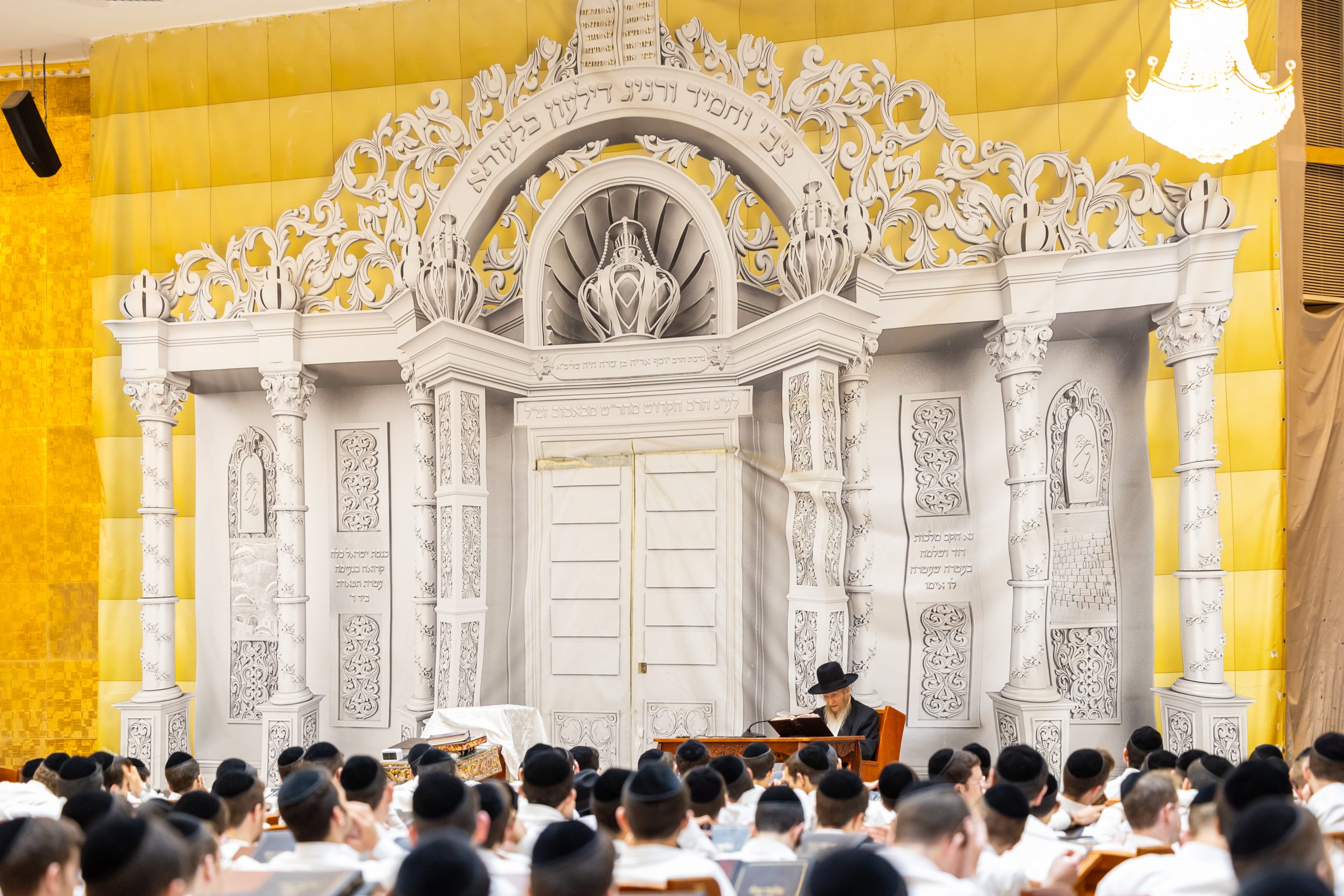Asiri Kodesh
As Yeshivas Ateres Shlomo begins its tenth year, the Roshei Yeshivah aspire to encourage the bachurim to completely dedicate themselves to learning by detaching themselves from everything that happens outside the walls of the beis medrash, in particular by abstaining from using even the most kosher telephones. During a special assembly, the Roshei Yeshivah delivered inspiring words on the subject and most of the bachurim joined the “Asiri Kodesh,” accepting upon themselves not to use a personal cellphone in the yeshivah until they get married.
Ateres Shlomo was established at Kiryas HaYeshivah, a large campus far away from the city, set aside and dedicated to avodas Hashem. This distant campus serves the yeshivah’s goals of educating talmidei chachamim who invest themselves in Torah and serve Hashem without the distractions of this world. This was the instructions and guidance of Rosh Yeshivah HaGaon HaRav Aharon Leib Steinman zt”l.
Working towards this goal, the rabbanim ruled that bachurim should not have cellphones in the yeshivah. Even “kosher” phones are problematic, since they keep the bachurim connected to everything going on in the world outside on a regular basis.
At the end of summar zman, in preparation for the upcoming, tenth year of the yeshivah, the rabbanim and Roshei Yeshivah shlita gathered together with the talmidim for a special assembly to reinforce this geder.

The importance of “gedarim“
Rosh Yeshivah Rav Chaim Feinstein shilta spoke about the importance of setting gedarim. “Every person should make a geder for himself, to examine himself, to make gedarim for himself. The tzibbur also needs to make gedarim. The Rambam writes that on fast days, the beis din would sit from morning until chatzos overseeing the takanos of the city and identifying its faults. That’s what needs to be done, we need to check, examine and make gedarim.”
“During a walk, my grandfather the Brisker Rav noticed someone building a fence. As they worked, the builders hung a rope with weights. When my grandfather asked about its purpose, they explained that it was used to make sure the fence would be straight and that no stone would stick out. The Brisker Rav said that without the rope and weights, it’s not that one stone would stick out, but that the whole fence would be crooked. This teaches us that if a person doesn’t see his own faults and doesn’t look to find them, nothing will be okay. There won’t be a fault here or there, everything will be out of joint.”

Remove worldly distractions to invest in Torah
Rosh Yeshivah, HaRav Chaim Mordechai Ausband shlita said, “When a bachur invests in his learning, nothing should distract him. Baruch Hashem, we always managed in the past and if there’s an important message the bachur will get it, don’t worry. There’s no need to be available all the time and learning Torah needs to be kodesh hakedoshim.”
“Every ben Torah should understand this and we should accept upon ourselves to fortify ourselves and guard this takanah and geder and Hashem will help us fulfill it!”

Completely devoted to learning
In his speech, Rosh HaYeshivah HaRav Shalom Ber Sorotzkin shlita mentioned that he was in the study of Rav Aharon Leib Steinman zy”a during a discussion about kosher cellphones. Rav Steinman said that if he would have the strength, he wouldn’t permit the manufacturing of the kosher cellphone. He said that if there wouldn’t be a kosher cellphone, then talmidie chachamim, averichim and ovdei Hashem wouldn’t have a cellphone at all.
“He said that if an avreich has a cellphone and gets messages while he learns, it takes the avreich away from being a “chacham.” Because he’s not completely devoted to his learning, he can’t be a chacham.”
“A bachur who is completely invested in his learning and doesn’t have a cellphone until his wedding is an emobidment of bilti l’Hashem livado.”
Towards Elul, most of the bachurim joined the “Asiri Kodesh” and accepted upon themselves not to have a cellphone until their marriage.

Appreciation and Recognition
To show appreciation for the bachurim who joined the Asiri Kodesh, the Rosh Yeshivah added their 800 families to the generous chalukah that the yeshivah distributes in honor of Torah and Yom Tov.
In a special letter to the families of the Asiri Kodesh, Rav Shalom Ber shlita wrote, “This is to express my wholehearted appreciation for our beloved talmid, a ben aliya, a member of the group of mivakshei Hashem, Asiri Kodesh, who merited to accept upon himself the yoke of Torah by detaching himself from this world and completely devoting himself to the four amos of halachah and Torah.”

Extra protection during troubled times
At the start of winter zman, due to the tense security situation in Eretz Yisrael and the requests of many parents to maintain contact with their children during these times, the Mashgiach, HaGaon HaTzaddik Rav Dan Segal, shlita asked the parents to preserve purity of their son’s ameilus b’Torah during these days. They should not give their sons cellphones in yeshivah, despite their worries, so they can start the zman and have their pure Torah serve as a protection and salvation for Am Yisrael.
Parents drew strength and encouragement from Rav Segal’s words and, baruch Hashem, they overcame their natural feelings and allowed their sons to return to yeshivah and completely devote themselves to limmud haTorah.
The Mashgiach shlita concluded with fiery words. “In the merit of the fact that we overcome our feelings for the sake of pure limmud haTorah, the Torah will pay its ‘debts’ and Hashem will make sure that we will be healthy, there will be salvation for all of Am Yisrael, we will all be able to learn with serenity and Tzion and Yerushalayim will be redeemed, b’mheira biyameinu Amen.“
